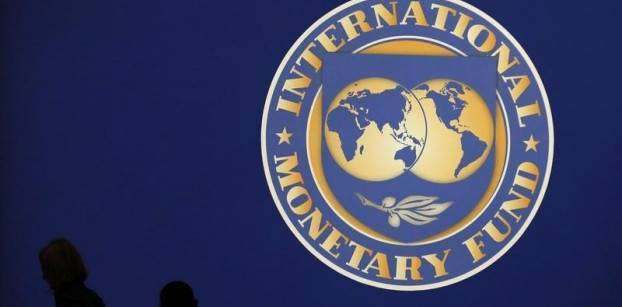Egypt expects to get at least $2 bln within 2 months of agreeing IMF loan

IMF logo - Reuters
CAIRO (Reuters) - Egypt expects to receive at least $2 billion within two months of agreeing a three-year $12 billion loan programme with the International Monetary Fund, a senior finance ministry official said on Thursday.
Egypt announced late on Tuesday it was seeking $4 billion a year over three years from the International Monetary Fund to help plug a funding gap and restore market stability. The government hopes to finalise the deal when an IMF team begins a two-week visit to Cairo on July 30.
In a news conference on Thursday, deputy finance minister for monetary policy Ahmed Kojak, said that each tranche of the IMF loan would have to be repaid within five years including a three-and-a-quarter year grace period.
Egypt has already said it expected to secure the IMF lending programme at interest rates as low as 1 or 1.5 percent.
The country is also planning to issue $2 billion to $3 billion in international bonds in September or October.
Kojak said Egypt would next week begin seeking international institutions to arrange that eurobond issue.
Kojak said the proposed IMF deal was only part of Egypt's programme to turn around its economy.
Egypt is also expecting the African Development Bank to approve in September the release of the second tranche of a $1.5 billion three-year loan programme, Kojak said.
Another finance ministry official said the release of those funds depended on Egypt implementing eight reforms including in the energy, electricity, trade and industry sectors.
The country plans to introduce a long-awaited fuel smart card system in the 2016-17 fiscal year which began this month, Kojak said. The cards are part of a wider effort to reform the country's subsidy programme, which eats up a large chunk of public spending.
Egypt has struggled with a severe shortage of foreign currency since a 2011 uprising ended Hosni Mubarak's 30-year rule and ushered in a period of turmoil that scared off foreign investors and tourists -- key earners of hard currency.
When the IMF talks were announced, the finance minister said the government had decided to turn to the international lender after facing years of rising budget deficits.
Egypt has obligations worth between $7 billion and $8 billion that it plans to repay this fiscal year, Kojak said.
(Writing by Lin Noueihed, Editing by Asma AlSharif)









facebook comments